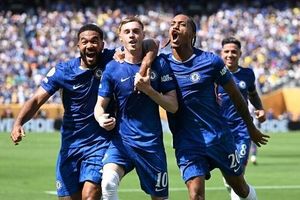The Vatican has officially announced that the conclave to elect Pope Francis’ successor will commence on May 7, 2025, following a closed-door meeting of cardinals on April 28. This secretive gathering, which will take place in the iconic Sistine Chapel, is set to bring together approximately 130 cardinals from around the globe to decide the next leader of the Catholic Church.
The upcoming conclave is already stirring significant intrigue, particularly with the question surrounding the participation of Italian Cardinal Angelo Becciu, who has been convicted of financial crimes. Becciu, once a powerful figure within the Vatican, was ordered by Pope Francis in 2020 to relinquish his “rights and privileges” as a cardinal after becoming embroiled in a financial scandal involving a multi-million-dollar investment in luxury London real estate. This scandal reportedly cost the Holy See losses of around $150 million.
As the world prepares for this pivotal moment in the Catholic Church’s history, the recent passing of Pope Francis at the age of 88 on Easter Monday, April 21, 2025, adds a somber backdrop to the proceedings. The late pontiff’s death has generated a notable surge in interest in the film "Conclave," which dramatizes the papal election process. Viewership for the 2024 thriller, starring Ralph Fiennes, Stanley Tucci, and Isabella Rossellini, skyrocketed by 283 percent on the day of Francis' death, according to the Guardian.
"Conclave" delves into the intricacies of the papal election, revealing the deep secrets and political maneuvering involved in selecting a new pope. The film follows Cardinal Lawrence, portrayed by Fiennes, who is tasked with leading the conclave. The plot thickens with the arrival of Cardinal Vincent Benitez, played by Carlos Diehz, the archbishop of Kabul, Afghanistan. Benitez shocks the assembled cardinals by announcing that the late pope had secretly elevated him to cardinal status, allowing him to both vote for and potentially become the next pope.
The film's narrative escalates as the cardinals grapple with their ambitions and the future direction of the Catholic Church. Tensions rise when a terrorist attack occurs, resulting in the bombing of the Sistine Chapel during a crucial vote. In the aftermath, Benitez delivers a powerful speech advocating for love and peace over violence, leading to his election as pope after a dramatic seventh vote, where he adopts the papal name 'Innocent.'
However, the film takes a bold turn when Cardinal Lawrence confronts Benitez about a cancelled trip to Switzerland for a medical procedure. In a poignant revelation, Benitez shares that he is intersex, having discovered during an appendectomy that he possesses both male and female reproductive organs. Initially planning to undergo surgery to remove his female organs, Benitez ultimately decides against it, embracing his identity as he reflects on the acceptance he received from the previous pope.
This fictional narrative raises questions about the future of the Catholic Church and how it might adapt to changing societal norms, especially with a new leader who embodies a non-traditional perspective. As the real-life conclave approaches, many are drawing parallels between the film’s depiction of the election process and the actual events unfolding in the Vatican.
The Vatican’s decision to hold the conclave reflects a pressing need for leadership following the loss of Pope Francis, whose tenure was marked by efforts to modernize the Church and address various global issues. The upcoming election is poised to not only shape the future of the Catholic Church but also influence its stance on social issues, particularly in light of the discussions surrounding Cardinal Becciu’s potential participation.
While the conclave is shrouded in secrecy, the anticipation surrounding it is palpable. Observers are keen to see how the cardinals will navigate their differing visions for the Church. Will they lean towards a more progressive approach or revert to traditional values? The outcome of this conclave could signal a significant shift in the Catholic Church’s trajectory.
As the date approaches, the eyes of the world will be on the Vatican, where centuries of tradition and modern challenges collide in a pivotal moment for millions of Catholics worldwide. The conclave will not only determine the next pope but also reflect the evolving dynamics within the Church, making it a historic event that could redefine its future.




